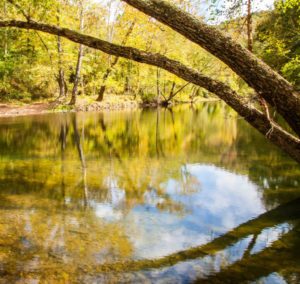WATER RIGHTS
AND WATERSHEDS
Sustainability Action approaches the question of local access to safe and abundant fresh water from several angles. An individual’s access to pure and abundant water is a basic human right, though not acknowledged by most authorities. On the other hand, water rights claims by regional and national governments have led to legal challenges and even war.
Lawrence gets its water from both the Kansas River and from Clinton Reservoir, whereas other nearby communities such as Eudora get municipal water from wells. Water protection issues can be challenging in Kansas because of complex water rights laws.
- Surface water is best protected by maintaining healthy watersheds with riparian buffers that filter water from urban and agricultural runoff.
- We work to protect wetlands, river woodlands, and 100 year floodplains from urban development (rural problems are hard to address, being mostly on private land).
- Well water is best protected by limiting surface chemicals that infiltrate the water table, and we have fought river-side sand pit operations that have that potential
- We have also fought private developers from privatizing groundwater that historically has been in agricultural use.

Earth is called the water planet, or sometimes the blue planet, because 71% of Earth’s surface is water. Salt water accounts for 96.5% of Earth’s water, and the 3.5% that is fresh water consists of 1.74% ice, 0.76% groundwater, 0.008% in lakes and rivers and swamps, and the remaining 0.992% is in the atmosphere and biological beings.
Water is central to all aspects of life, and indeed life itself. Water is the universal solvent, so it bonds to virtually any other compound. If polluted, it can introduce toxins into our bodies, but if pure, it can flush toxins from our bodies. So water plays a critical role in maintaining our health, in addition to keeping us hydrated.
Humans have been depleting groundwater faster than it can be recharged, going to agriculture, but also to industrial operations and frivolous things like bottled water and soft drinks. And we have been polluting the lakes and rivers (and groundwater). That tiny percent of fresh water is in serious jeopardy.

